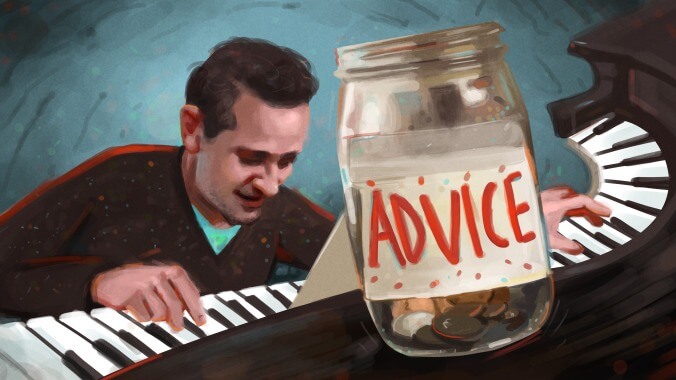Ask an indie rock veteran: Why is “Auld Lang Syne” the best melody?

Have you seen much violence at your shows? Is it more of a presence at indie rock shows than you would think?
—Emile, Toulouse, France
There wasn’t much—an occasional fight maybe. Once in a while some guys would get kicked out.
I spent some time going to hardcore shows when I was a kid, and those were rougher. A club in D.C. called the BBQ Iguana would have Sunday afternoon matinees with eight or 10 bands that always had fights. One Saturday night some guys pulled a truck up to the back door and stole the entire club. I remember walking home the next day, after finding the place gone, and thinking to myself thank God.
A few years later I saw The Jesus Lizard play at CBGB’s. It was one of those shows that was so crowded your arms were pinned at your sides. As soon as the band started, the place erupted. From that point on people were fighting, running onstage, climbing the PA, humping the monitors (me). It was monkeys at the salad bar.
There was a skinhead guy, somewhere in the 200-to-300-pound range, front and center. He got onstage and grabbed David Yow (the singer) in a bear hug and jumped with him in his arms. David Yow is really small, but the other dude was so big that the crowd parted. Straight to the concrete floor they went, and it was brutal. The band stopped, Yow was unconscious, and the skinhead was gone. The band jumped offstage yelling, “Where is that fucking guy?” The crowd parted again, this time to reveal the large skinhead on all fours toward the back of the club, trying to crawl out to the street.
Duane Denison (the guitarist) grabbed a beer bottle and to everyone’s astonishment smashed it over the dude’s bald head. Then the rest of the band started pounding on him. They didn’t damage him permanently or anything—it actually seemed like a reasonable response, considering. Then they went back, picked up Yow, and took him backstage. Ten minutes later they reappeared and started up again. It was all very intense, heightened by The Jesus Lizard’s “time to make the donuts,” all-in-a-day’s-work attitude.
Do you have a favorite melody?
—Steve
I’ve always loved “Auld Lang Syne.” It’s a cliché to describe music as questions and answers, but there are few melodies that sustain a dialog quite so well. A beautiful, unresolved high in the first 15 seconds is answered in a way that you don’t realize it has been. And it’s done with successive small resolutions, instead of one big one. The cumulative effect is both satisfying and heartbreaking—which is just what you hope for from a sad song in a major key.
